Understanding a DWI vs. DUI in North Carolina
If you’re on the road in North Carolina, the beautiful beaches and rolling mountains aren’t the only things to be aware of. The Tarheel State is tough on DUI and DWI offenses, so motorists should understand their legal responsibilities.
Thinking about getting behind the wheel after indulging in anything stronger than sweet tea? You should know that when it comes to DWI vs DUI, North Carolina doesn’t make a distinction.
That’s right—there’s no difference between driving while intoxicated and driving under the influence under North Carolina law. There are, however, 5 different levels of misdemeanor DWI in North Carolina. But no matter the level, any DWI conviction will result in losing your driver’s license, along with other penalties, including fines and IID (Ignition Interlock Device) requirements.
Read on as we map out everything you need to know about DWI in North Carolina.
DWI vs DUI
What does it mean to drive while intoxicated (DWI) vs. driving under the influence? Both terms refer to operating a vehicle while affected by any substance—alcohol, marijuana, and even legal medications if they affect your ability to drive. And in the eyes of the North Carolina legal system, there is no difference between the terms “DUI” and “DWI.”
Prior to 1983, North Carolina did recognize DUI as a separate offense, and the penalties were less severe than those for DWI. However, that all changed with the Safe Roads Act of 1983.1 This law repealed all existing laws on impaired driving in North Carolina, replacing them with the single charge of DWI.2
So, when it comes to the question of DUI vs. DWI, North Carolina keeps it simple: It’s all considered a DWI offense.
North Carolina DWI Laws
North Carolina’s DWI laws are strict, allowing law enforcement to take stringent measures to ensure driver safety. You may even encounter sobriety checkpoints on roadways, where drivers are stopped for on-the-spot field sobriety test or BAC (blood alcohol content) checks.3
Other North Carolina DWI laws to note include2,4:
- DWI applies to any substance – NC DWI laws aim to address impairments caused by any substance, whether that’s alcohol, drugs, or both. Driving with any Schedule 1 controlled substance in your system is a DWI.4 Schedule 1 drugs include opiates, marijuana, LSD, ecstasy, and many others.
- DWI applies to physical control – Your vehicle does not have to be moving for you to be charged with DWI. In North Carolina, simply having “physical control” of a vehicle while impaired is grounds for a DWI case.
- Substance abuse assessments and counseling are required – Drivers with repeat DWIs or high BAC are required to complete an assessment for substance abuse problems. Drivers with lower BAC are required to attend alcohol safety school. Substance abuse assessment is also required for any DWI conviction before driving privileges are restored.
- There are stiffer penalties for repeated offenses – Jail time is mandatory for drivers with a second DWI conviction.
Blood Alcohol Content Limits in NC
North Carolina follows the same legal limit for blood alcohol content as the rest of the United States: 0.08%. For commercial drivers, that limit is reduced to 0.04%. But you can also get a DWI without being over the 0.08 limit—the arresting officer simply has to show that you were “appreciably impaired.”2
If you’re found to have a BAC of 0.08 or above, your driver’s license will be immediately revoked for a minimum of 30 days. But if you’re asked to perform a BAC check or a field sobriety test at a traffic stop, refusing the test won’t prevent the problem. Refusing to perform any test carries a penalty of immediate revocation of your license for 30 days, followed by an additional minimum one-year suspension.
Lastly, be aware that NC has a zero-tolerance policy for underage drinking and driving. If you’re under age 21, driving with any amount of alcohol or drugs in your system can result in a DWI conviction.5
DWI Penalties in North Carolina
Are you being charged with a DWI in North Carolina? Don’t despair. But, is a DUI a felony in NC? There are many levels of DWI charges under NC law. The penalties that follow a conviction depend on aggravating factors like the severity of any applicable crashes, whether anyone was injured, and your BAC. Furthermore, a DUI is only considered a felony after repeat offenses.
Here’s an overview of the different NC DWI levels and penalties associated4:
- Level V – This is the least serious misdemeanor DWI charge in NC. Penalties include a fine of up to $200 and a minimum of 24 hours’ jail time to a maximum of 60 days.
- Level IV – Penalties are a fine of up to $500, plus a minimum of 48 hours jail time, to a maximum of 120 days.
- Level III – Fines increase to a maximum of $1,000, plus a minimum jail sentence of 72 hours, up to a maximum of six months.
- Level II – Aggravating factors like repeat DWIs, driving with a suspended license, driving with children in the car, or causing injuries to another person result in level I and II DWI charges. Level II DWI carries a maximum $2,000 fine, plus jail time of seven days to a maximum of one year.
- Level I – This is the most serious level of misdemeanor DWI, and it’s punishable by a maximum $4,000 fine and jail time of 30 days to two years.
Note that all DWI convictions in NC result in revocation of your license for a minimum of 1 year. After that, you’ll be required to install an Ignition Interlock Device in NC for a period of 1, 3, or 7 years, depending on how many DWIs you’ve had in the past 7 years.
Drive Responsibly With Help From Smart Start
Facing a DWI charge in NC can be stressful, but it doesn’t have to end your driving career. Driving responsibly in the future—especially during your IID requirement period—will ensure that your driving privileges are restored quickly and completely.
Smart Start makes fulfilling your IID requirement easier with our speedy installation, affordable pricing, and user-friendly devices.
An IID doesn’t have to be a bulky, awkward piece of equipment on your dashboard. Smart Start’s IIDs are sleek and discreet, about the size of a cell phone. Plus, our innovative patented designs make calibrating your IID as simple as changing a battery—a convenience that no other IID provider can offer.
Contact Smart Start today, and learn how we can get you driving again.
Sources:
- General Assembly of North Carolina. S.L. 1983-435. https://www.ncleg.net/enactedlegislation/sessionlaws/html/1983-1984/sl1983-435.html
- State of North Carolina Department of Transportation. The North Carolina driver’s handbook. https://files.nc.gov/ncdhhs/alcoholandthelaw.pdf
- NC Law Talk. Sobriety checkpoints and your rights in North Carolina. https://nclawtalk.com/sobriety-checkpoints-and-your-rights-in-north-carolina/
- Driving Laws. North Carolina DWI laws and penalties. https://dui.drivinglaws.org/ncarolina.php
- North Carolina Department of Public Safety. Zero tolerance. https://www.ncdps.gov/our-organization/law-enforcement/state-highway-patrol/laws/driving-alcohol/zero-tolerance
- North Carolina Department of Public Safety. Driving and alcohol. https://www.ncdps.gov/our-organization/law-enforcement/state-highway-patrol/laws/driving-alcohol
- North Carolina Department of Public Safety. Driving while impaired. https://www.ncdhhs.gov/divisions/mental-health-developmental-disabilities-and-substance-use-services/driving-while-impaired
Schedule an Installation
Get a quick and easy IID installation with Smart Start! Get started today!
¡Obtenga una instalación rápida y fácil de IID con Smart Start! ¡Empieza hoy mismo!
"* (required)" indicates required fields






